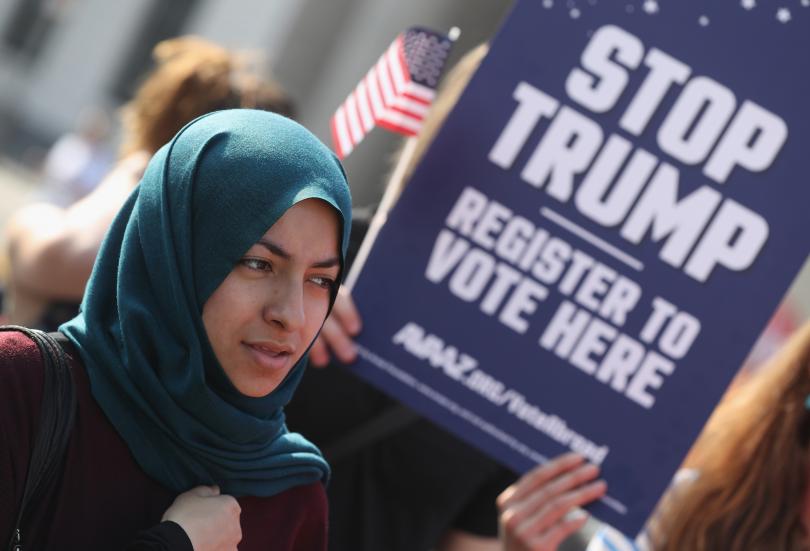
RNA - Ez-Zohra Baidouri, 73, left Morocco in 1986, settled with her family in Northeast Philadelphia, and became a U.S. citizen15 years ago.
On a recent afternoon, after prayers at Masjid Al Furqan mosque on Roosevelt Boulevard near Cottman Avenue, she signed a voter registration form - a first for her.
"Trump, not," she said.
Zakir Ullah, 37, born in Pakistan and naturalized in 2007, stopped by the volunteers' table outside the mosque to get a form for his wife, 30-year-old Husna.
"I'm registered, she is not," Zakir Ullah said. "We have to pick the person who will be better for the country. I prefer Hillary."
Republican presidential nominee Donald Trump's call to stop Muslim immigration, and his swipes at Arab countries as incubators of terrorism, have offended some Arab-American and Muslim American groups. They are pushing back with voter registration drives.
"Yalla Vote" - roughly translated as "come on, vote" - is a national initiative of the nonprofit Arab American Institute, which is targeting the 12 states with the highest concentrations of Arab Americans.
Because voter registration forms do not ask for religious affiliation, no one knows how many Muslim Americans are registered voters. As for numbers of Arab-Americans state to state, AAI's estimates are higher than census figures. The institute contends the government undercounts Arab-Americans because of ambiguity in the census question on ancestry, and "distrust/misunderstanding of government surveys among recent immigrants."
Yalla Vote's organizers say they are promoting voting, not candidates, and that their mission is to use the power of the ballot box to put Arab Americans at the forefront of national conversations on such topics as surveillance, profiling, immigration, and U.S. foreign policy in the Middle East.
"With an estimated population of over 180,000, the Arab-American community in Pennsylvania could be a swing constituency" on Election Day, said Yalla Vote's Pennsylvania field coordinator, Summar Elgogari of Reading, a Temple University senior majoring in secondary education and social studies.
Since late July, a grassroots interfaith group in Philadelphia has heeded the call of some of its Muslim members and has circulated fliers - "As-salamu alaykum! Are you registered to vote?" - aimed at what it estimates are thousands of unregistered Muslims in the city.
One of the group's founders, Tarik Khan, 37, is a nurse practitioner who was born in Bustleton. The coalition has no official name, though Khan calls it Trump Busters. It includes members of EmergeUSA, a national nonprofit that promotes civic engagement in Muslim, South Asian, and Arab American communities.
"It just hit me as someone who is Muslim, watching Trump rise because of anti-Muslim bigotry," Khan said. "I wanted to help strengthen the voice of the Muslim community."
At the Muslim American Society of Philadelphia, a mosque, school, and community center, director Naser Khatib has joined a national campaign by the U.S. Council of Muslim Organizations to register one million voters. The driving force, the organization says, is a sharp rise in Islamophobia.
"We want to show Trump, and even Hillary, that we are here and we will vote," he said. "Vote is power."
847/940